What are the best books I have read thus far? I have revamped my favorite books list from 2015 to make it cleaner, add more books, and change things around. I will add in parentheses what the original ranking was if I keep it in. If a series is part of a single story, I will include it together, such as Lord of the Rings.
Breakdown
I keep track of every book I read on Goodreads. Most books I read are fiction, but I mix in occasional non-fiction. The strength of the plot matters the most to me and then how it is articulated. Genres I often read: mystery, sci-fi, fantasy, action, adventure, detective/military thrillers, drama, and some historical. Genres I don’t read much: horror, romance, self-help books, memoirs, poetry, religious books, business, & health. I typically avoid old English, such as 17th-century Shakespeare and later 19th-century writer Mark Twain.
There are no particular criteria I consider for books, unlike movies. My focus is on one question: what are the most inspiring and memorable books? For fiction, the plot, writing style, and creativity are important. For non-fiction, the inspiration value and big-picture importance of the contents are important.
Rankings
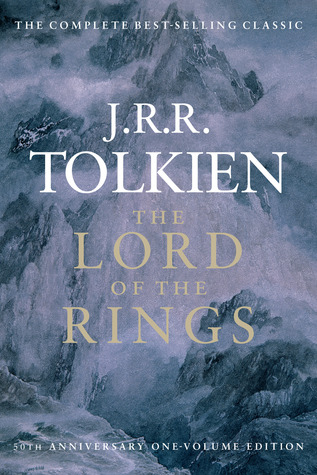
1. The Lord of the Rings: 50th Anniversary, One Vol. Edition – J. R. R. Tolkien (original ranking #1)
– J. R. R. Tolkien (original ranking #1)
No fiction list is complete without a mention of the Lord of the Rings (LOTR) series, including The Fellowship of the Ring, The Two Towers, and The Return of the King. It’s a single book that was split for publishing reasons. Tolkien took 12 years to write this masterpiece, and it was an exhilarating read for us readers. I read it in 7th grade for leisure, and it took me about 6 months to read through all 481,103 words. I felt it was not an easy read.
Overall, it is the best series I have ever read based on the plot, the writing style, and the characters that Tolkien introduces us to. The characters were so memorable that you carry them with you for life. These include Aragorn, a man destined to be king of the realm of men; Legolas, an honorable elf prince and the best archer; Gimli, the badass dwarf prince with an axe that could rip through hordes of orcs; Frodo/Sam, inspiring hobbit heroes showing that even the unlikely can change the world; Gandalf, wise, magnificent wizard who everyone looked up to; Sauron, the evil Dark Lord, and many other characters I won’t get into. 9.5/10
2. Song of Ice & Fire (Game of Thrones) 5-Book Boxed Set – George R. R. Martin (original ranking #2)
(original ranking #2)
George Martin began writing the series in 1991 and has written 1,770,000 words throughout the 5 books. Book 6 has been in the works since 2011 and has been getting delayed ever since. I can’t say enough about how great and deep the plot has been. Certain details and a few chapters feel unnecessary, but you get the sense that Martin gets engrossed while writing. I can’t dock points off for that because he is one of the finest writers I have ever come across with a spectacular imagination.
Overall, I cannot praise the series enough. The number of characters is simply staggering, and the writing style differs from most writers because of the focus on realism. The length might push some potential readers away. Still, it is a series you have to read (especially if you’re a Game of Thrones fan!) The show was great until the last season, but it skips many great plot twists to fit the screen. 9.5/10
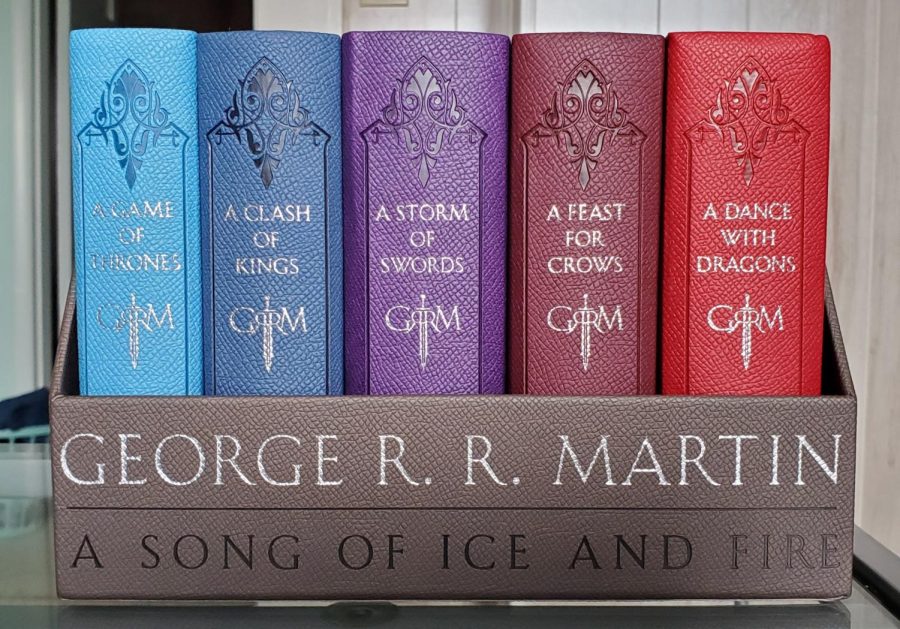
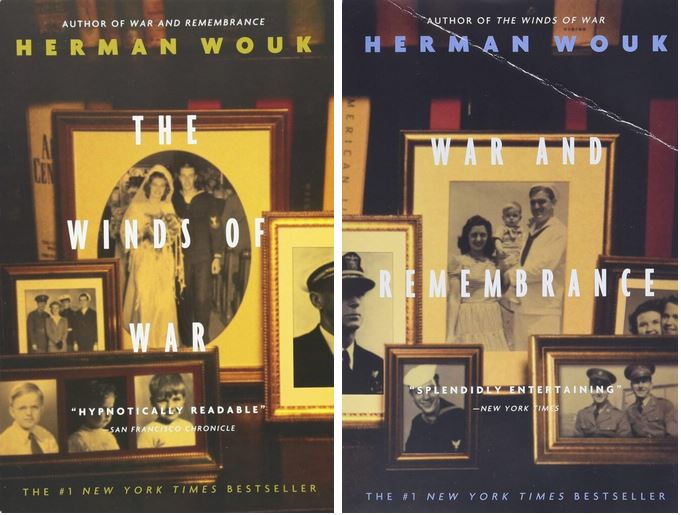
3. Winds of War & War and Remembrance – Herman Wouk (original ranking NR)
Herman Wouk’s historical fiction series includes “Winds of War” and the sister novel “War and Remembrance.” These two books form a continuous story of World War 2, spanning from 1939 before the invasion of Poland by Germany to the nuclear bombings on Hiroshima and Nagasaki in 1945. The novels follow a fictionalized Captain Victor Henry & members of his family across the stage of World War 2 through various battles and documented historical events.
Wouk is a masterful storyteller who stays true to the historical facts while bringing together authentic characters depicted as part of the subjects of WW2. This epic feels more like an autobiography than a novel. I reviewed it more in-depth here so I won’t rehash everything. While very long, I consider this a must-read, especially if war, action, and historical realism interest you. I think Wouk is one of the greatest writers of the 20th century. 9.5/10
4. The Kingkiller Chronicle – Patrick Rothfuss (original ranking NR)
This series is a trilogy that includes The Name of the Wind, The Wise Man’s Fear, and the unreleased The Doors of Stone. Much like Song of Ice and Fire, this series’ future is up in the air. Rothfuss has said many times that he has been working on book 3, but who knows if it will ever be finished. I believe concluding any series satisfyingly is daunting for even the greatest writers.
The story begins in the Waystone Inn of the fictional town of Newarre. It is an adventurous flashback of a highly gifted wizard, Kvothe, who we follow from his impoverished childhood as part of a traveling troupe of street performers to adulthood when he becomes a legendary wizard. According to Kvothe, the story would take 3 days to tell and so each book covers a day of storytelling. I can’t say more without spoiling the plot. 9.5/10
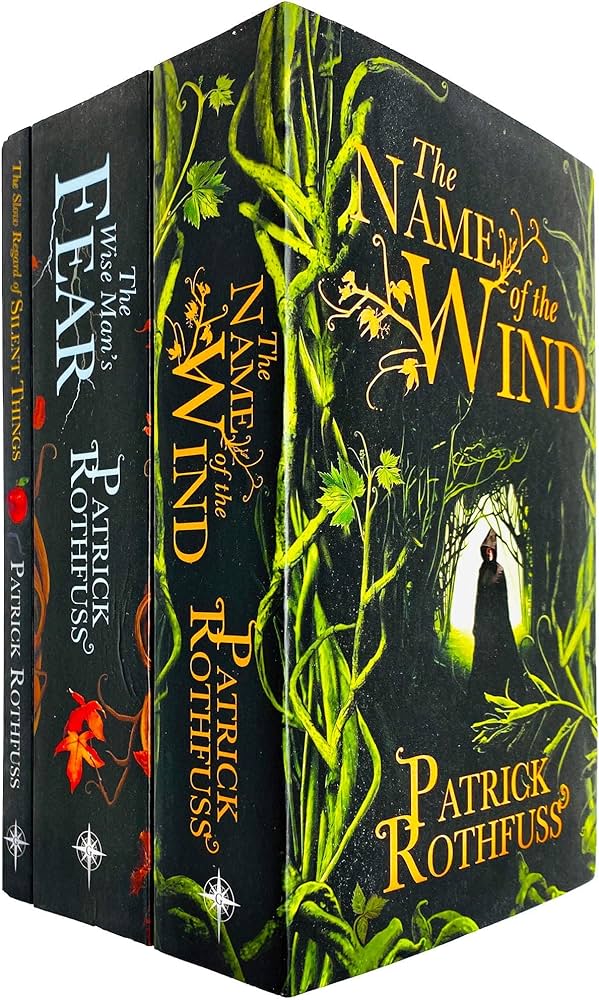
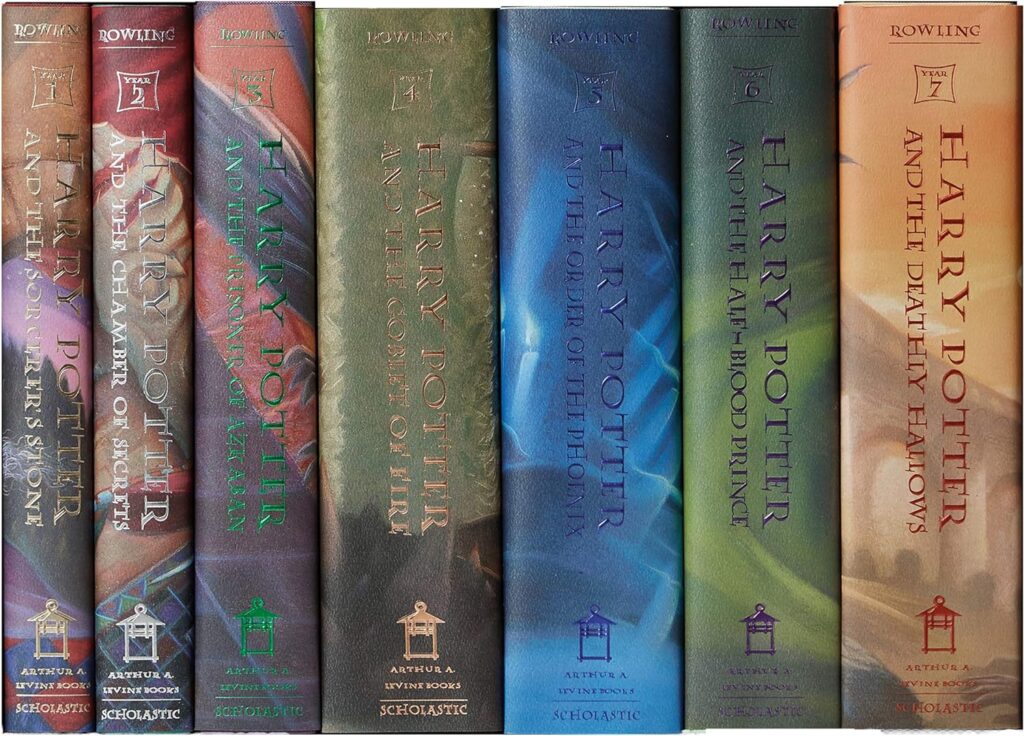
5. Harry Potter Paperback Box Set (Books 1-7) – J. K. Rowling (original ranking #3)
– J. K. Rowling (original ranking #3)
The Harry Potter series might very well be the most famous book(s) on this entire list. I read the first book in 3rd grade (1999) when my class teacher read it to the rest of us once a week for 2 hours. I liked the book so much that I borrowed the book from the library and speed-read through it ahead of the class. This is one of those series that would appeal to 10-year-olds and 70-year-olds alike. The other books on this list are targeted at teenagers and adults.
Harry Potter was a person you always cheered for, along with his friends Ron, Hermione, and others. You cheered against people like He-Who-Must-Not-Be-Named who people were scared to name… you know what? Screw it. VOLDEMORT, VOLDEMORT, VOLDEMORT. Have some guts, people! When a new Harry Potter book was out, I could not put it down until I finished it. The beginning was exciting, and the closer the ending came, I became conflicted. I wanted to read the ending, but I also knew the book would be over (Ahh, damn it!). No re-reads would ever have the same excitement because I would know the entire story already. Only the first reading truly matters! Of course, the want to read it would win over the disappointment of the book being over! 9.5/10
6. The Complete Sherlock Holmes – Sir Arthur Conan Doyle (original ranking #4)
– Sir Arthur Conan Doyle (original ranking #4)
The greatest detective of the ages. There is no detective thriller without the great Sherlock Holmes. Sherlock could just look around and use masterful deductive skills to get directly to the bottom of a mystery. His assistant Dr. Watson, who had worked with Mr. Holmes for many years, would be awestruck trying to figure out what happened (his priceless reaction when Sherlock explains at the end of the case would be our reaction).
I first read this in 7th grade for school summer reading and didn’t think much of it then. I read it again, and it completely blew me away on my second read-through. It’s ironic that when you’re reading something for fun, you appreciate it more & understand it better than when you’re reading it expecting an exam when you get back to school. I guess it’s the stress of thinking to yourself, “Oh, I must remember this detail and that detail!” and overthinking things rather than just reading.
This is a spectacular series by Sir Arthur Conan Doyle, who was a masterful storyteller in his own right. 9.5/10
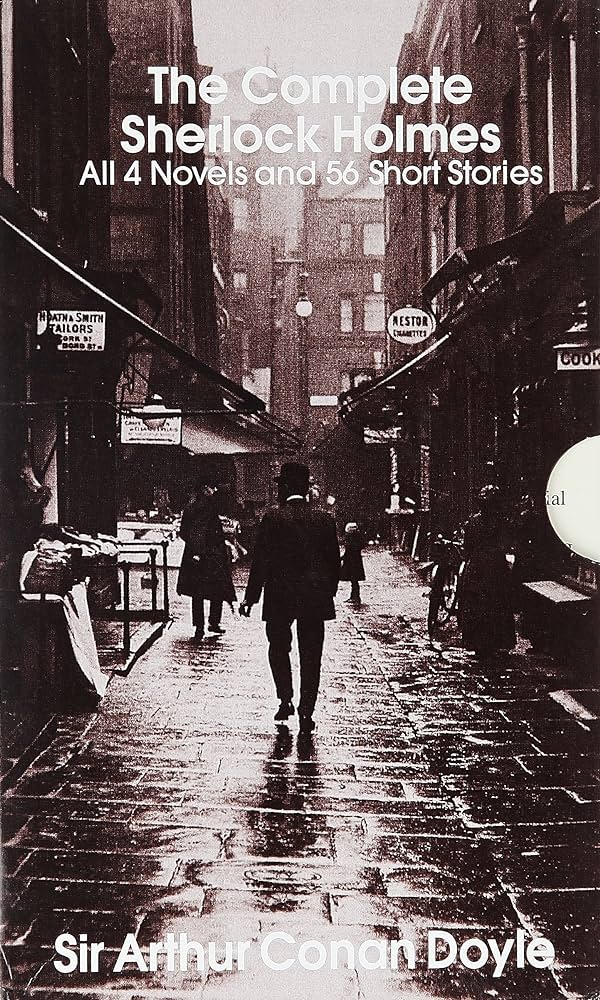
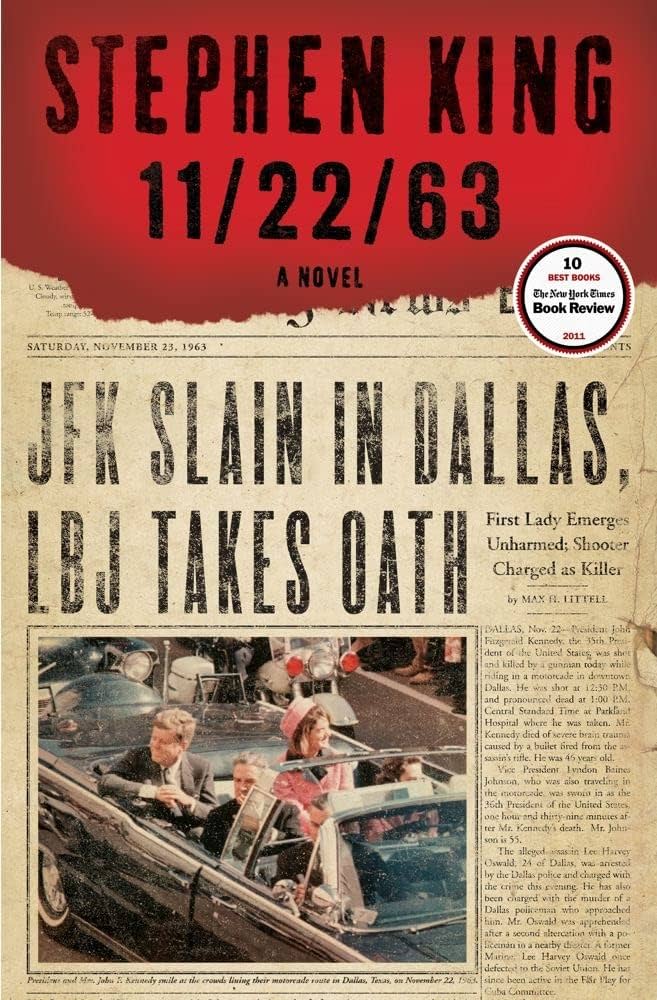
7. 11/22/63 – Stephen King (original ranking NR)
The mark of a brilliant writer is a novel that feels so real as if it were an actual re-telling of an alternative reality. 11/22/63 was such a masterpiece from Stephen King. While a long novel, every page was worth it. It was so well-knit that there rarely came a moment when something felt unnecessary. King brought time travel, a thrilling plot, and a romantic story together into one masterpiece.
It is interesting to think about alternate timelines. King was a teenager when JFK was assassinated, so that event had a profound impact on him. It was a shot heard around the world and reverberated through time. JFK was a respected and beloved president. He was young, charismatic, smart, had military experience, and was wise beyond his years. History would have been unrecognizable had JFK stayed in power all through 1968. I’m sure many people sat there wondering what could have been. All we can do is imagine the what-ifs.
That is where King comes in. He discusses historical facts, rumors, studies, and interviews around the JFK assassination to develop a plot that stays near the known facts. King went on-site to understand the key locations and parsed through studies. Paradoxes were considered, such as the Grandfather paradox and the butterfly effect. The butterfly effect makes it unlikely that any event is truly not dependent on another. A minor change can alter the future. The ramifications make time travel tricky to understand and write about. I thought King did an excellent job, considering as many possibilities and consequences as possible while staying within the bounds of believability. 11/22/63 is a page-turner that will keep you up at night, especially as you get near the assassination event. 9.5/10
8. Project Hail Mary – Andy Weir (original ranking NR)
Andy Weir, known for his outside-the-box ideas since his first novel ‘The Martian’, has a knack for getting his characters out of holes that seem impossible, but in ways that are scientific and believable to a reader.
The journey in Project Hail Mary begins with an astronaut, Dr. Ryland Grace, waking up from an artificially induced coma next to his two dead crew members in his spacecraft. All while hurling out into space towards the star Tau Ceti. Grace initially has no recollection of why because of brain damage. As the story progresses, he begins to recall his memories, recounting to us the events that led up to that point. It is a story of overcoming the impossible, battling for survival, innovating ideas on the fly, learning from mistakes, experimenting with science, finding hope, self-deprecating humor, and building a friendship that spans light-years. It all takes place in three rooms within the spacecraft and outside for repairs. However, Weir never makes you notice it. You are always on your toes and focused on the issue at hand.
Andy Weir did a great job explaining complex scientific concepts to make them easy to understand for non-scientists. However, the reader doesn’t need to understand relativity or thermodynamics to appreciate the novel. He stayed close to science as much as possible while mixing in imagination. The ideas, writing style, and details were mind-blowing, original, and felt believable. 9.5/10
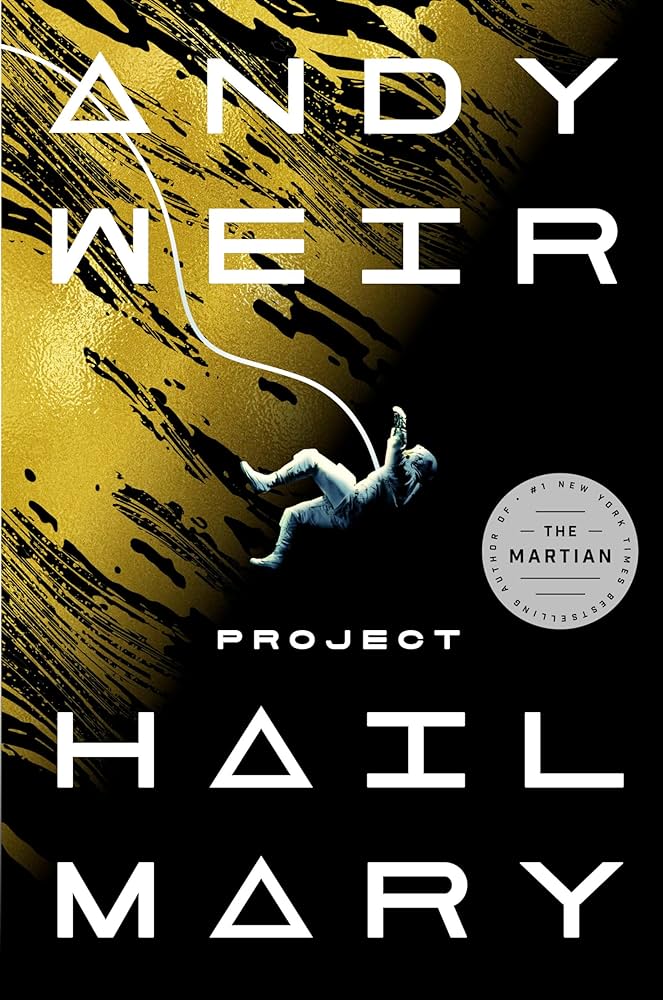
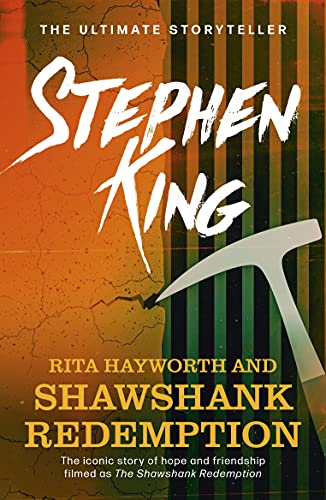
9. Rita Hayworth and Shawshank Redemption – Stephen King (original ranking NR)
Many are already familiar with the masterpiece film ‘Shawshank Redemption.’ It is my favorite movie of all time, and I was even more taken aback by it after reading the novelette. The story is from the perspective of Red, who is serving time in Shawshank State Penitentiary for multiple murders. After murdering his wife and her lover, former banker Andy Dufresne, who claims innocence, is convicted and sent to Shawshank. Red, who excels at smuggling things from the outside, becomes a close friend of Andy. Red tells the fabled story of Andy from the time he arrived, his growth as a person, and his eventual escape.
‘Shawshank Redemption’ is a marvelous story of the triumphant might of humanity to hold on to hope against all odds. The story is about hope, dreams, redemption, justice. Andy is someone who you admire from the very moment Red meets him. He is a brilliant man with much knowledge of the ins and outs of the world. His clever ideas and expertise in doing taxes, including tax evasion for the guards & the warden, catapult Andy to the top of the chain. They grant him special privileges in return, including the protection of the guards, a private cell, and control of the prison library. Through the observant eyes of Red, we see Andy work his way past hell over many long, arduous years, slowly but methodically working out his escape. Through the journey, Andy never breaks. He grows, overcomes, claws, fights, and digs his way out one day at a time. All for freedom.
King is a savant writer with ingenious imagination and original ideas. He did a great job drawing us into this timeless classic. King had us from the first page, the first hello to the very last page. You never feel dull or like you are dragging to keep up. When you finish reading the last page, you will feel a void in your mind, almost disappointed that the story had to end.
It is a quick read and well worth it. And be sure to watch the movie as well. The movie stays true to the novelette. Because Red jumped around a lot and wasn’t a reliable narrator, the filmmakers made some minor changes in the film to create continuity. 9.5/10
10. Pale Blue Dot: A Vision of the Human Future in Space – Carl Sagan (original ranking NR)
This was the second book I read from astrophysicist Carl Sagan (after Cosmos), and I found it fascinating. Dr. Sagan covers the history of our species from ancient times. He explains why it took so long for humans to adopt the heliocentric model of the sun being at the center of our solar system, including human vanity and religions punishing those who refused to accept that humans have a special standing in the universe. Sagan then focuses on space travel and the hurdles it took for us to surmount to become space-traveling beings. He discusses what challenges lay ahead and the importance for us to grow as a species with bases on other planets. Our survival as a species depends on it, especially because of the number of extinction threats we face.
Sagan is poignant and on a point in his passionate argument that Earth cannot be our only home. Earth is the only home we have ever known, as Sagan would say, but it also can’t be our graveyard. Humanity should focus not only on protecting the Earth but also on expanding beyond it, dispersing as a species across the solar system. It is shortsighted to focus only on Earth. To safeguard humanity from extinction, we must employ all available strategies, including space colonization and terraforming of planets/moons too harsh for humans. We have a long road ahead of us, but Sagan is optimistic that our differences should not prevent us from working together. 9.5/10
I want to end with a quote that I found inspiring: It’s too long to post so I will link it. Pale Blue Dot quote.
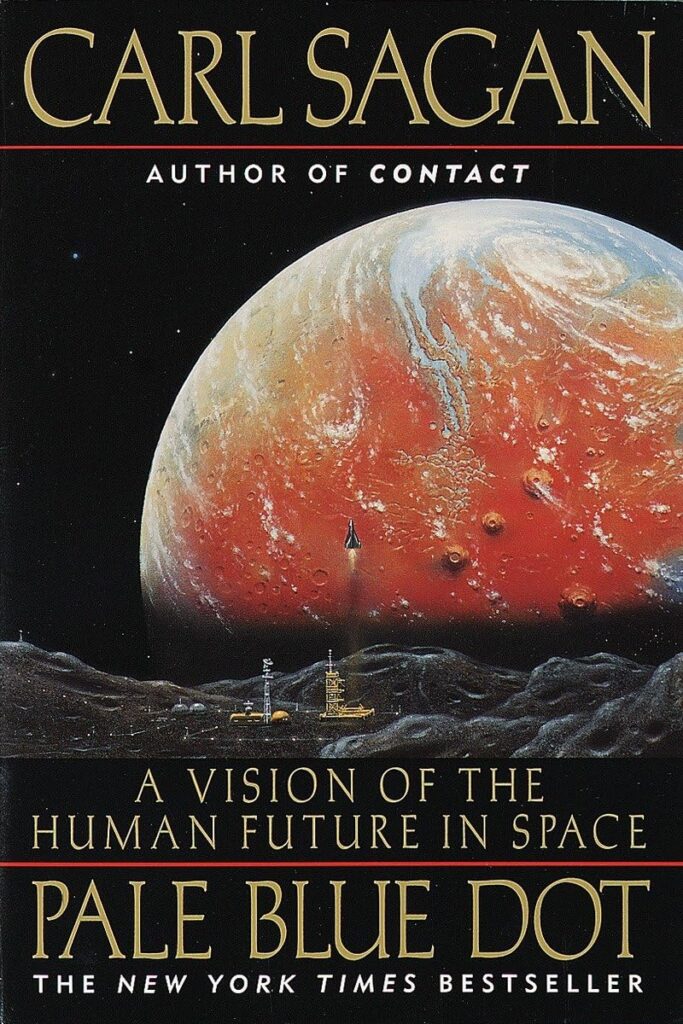
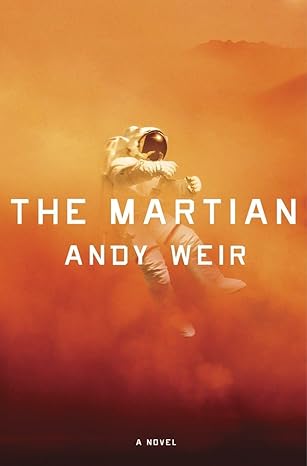
11. The Martian – Andy Weir (original ranking NR)
‘The Martian’ is another spectacular novel by science writer Andy Weir. I don’t like to call him a sci-fi writer because his ideas are always scientifically sound and within reason. He never dwells in fantasyland, inventing magic or half-assed solutions. His magic is science. Weir has a computer science background and originally wrote this novel on his blog, posting each chapter for his readers. It became so popular with his readers that he self-published it. The self-published novel led to a publishing company buying the rights. Soon afterward, it became a bestseller, and a film company signed the rights to bring it to the big screen.
A crew of NASA astronauts has made their way to Mars for a science expedition. After a few days, a massive sandstorm threatens to trap them forever on Mars and forces them to evacuate. In their rush, a freak accident leaves astronaut Mark Watney stranded on Mars. Fearing him to be dead, NASA left Watney to fend for himself. Watney’s communication electronics are crippled, so he has no way to contact NASA or his crew up in Mars orbit. Furthermore, his food and supplies are dwindling, leaving him little time. So, his only option is to survive by quote “science the shit out of it.” As a result, he must do everything possible to buy time using his scientific expertise, knowledge, and ingenuity to make it back home. Since he is a botanist and engineer, he has the background precisely needed for survival.
The story is captivating, and once you start reading, you won’t be able to put it down. Some technical details are difficult to read, but you can easily skip those. Weir used humor and optimism to keep you on your toes rather than gloom and doom about something that seemed impossible. Watney’s perseverance and will to never lose hope was inspiring and riveting to read. 9.5/10
12. Contact – Carl Sagan (original ranking #8)
(original ranking #8)
Astrophysicist Carl Sagan was ahead of his time, and he knew how to communicate complex scientific concepts in simple terms that anyone could understand. The novel Contact was his most famous book that was later turned into a movie starring Jodie Foster & Matthew McConaughey. Contact was a powerful exploration of the search for extraterrestrial intelligent beings, and the movie portrayed it magnificently (the book was much better!).
SETI was built to search for extraterrestrial signals in the Milky Way galaxy. If we found a signal, how would we react? What would the world think? Sagan showed reactions from groups of people originating from different parts of the world. Some were praying for God, some thought it was the end of the world, some were indifferent, some embraced it, and some fought to stop the scientists through terrorist acts. Every spectrum of reaction was expressed. Scientists, politicians, engineers, and people of different backgrounds, religions, races, genders, classes, and ethnicities all unite to decipher and build a massive machine that was detailed in the alien message. Sagan brought into play actual physics concepts and mathematics to help readers understand everything that was happening.
This book was very inspirational to me in understanding where we stand in the cosmos. We have much to learn as a species and many more milestones to reach, both technologically, culturally, and individually. 9/10

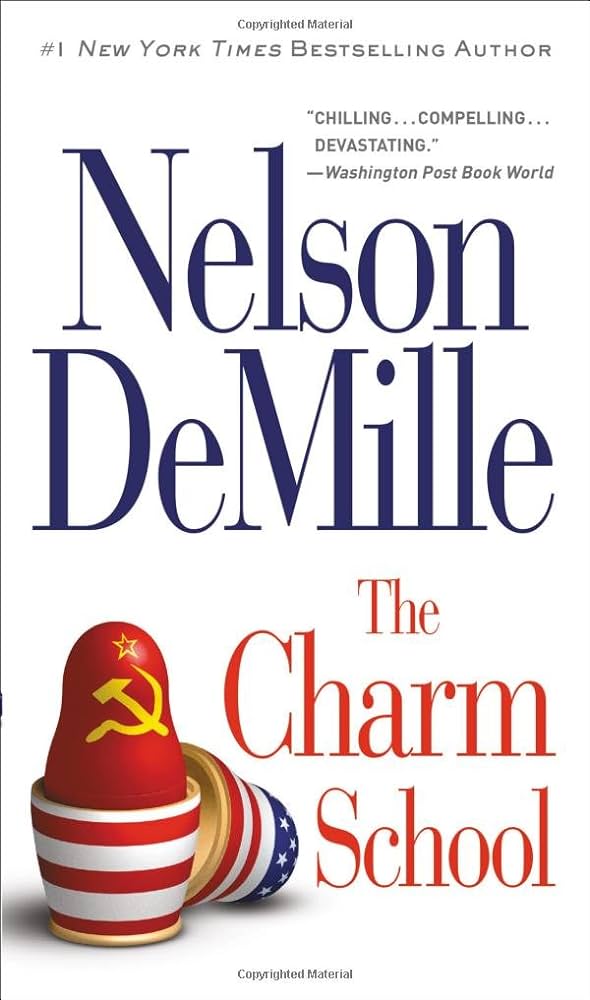
13. The Charm School – Nelson DeMille (original ranking #6)
(original ranking #6)
Charm School is a Cold War spy thriller taking place in the Soviet Union during the height of the Cold War. A US air attache (essentially a spy) Colonel Sam Hollis, who works for the US embassy in Moscow, gets a phone call from an American college student on vacation in the USSR. He claims he met a Vietnam War air-force pilot who had crashed behind enemy lines in Vietcong and was taken prisoner. The Soviets bought these prisoners from the Vietcong and transported them to a camp in the Soviet Union. The POWs then were tortured into providing training to Russian spies to infiltrate the USA. Within an hour of the phone call, the KGB starts up a hunt to kill the student before he meets with the US Colonel Hollis. Hollis and his CIA boss (a super-spook) have political immunity, but it would not stop them from having an “accident.”
This book has it all. Spy, detective, cat-and-mouse chase, adventure, some historical information, etc. Author Nelson Demille truly went to Moscow during the Cold War in the 1980s to research the locations he was writing about for authenticity. There were suspicions of the Soviets buying POWs from the Vietcong for information, but nobody could prove it. The TV show “The Americans” masterfully depicts this possibility. 9/10
14. The Day of the Jackal – Frederick Forsyth (original ranking #5)
(original ranking #5)
Day of the Jackal is a fictional story that is based on historical facts. Charles de Gaulle was the President of France in the 1950s and 1960s. Some people hated him because they felt he ran a tyranny in France, especially a French terrorist organization called OAS. They vowed to kill de Gaulle by any means necessary. They attempted to kill him many times (perhaps 10-15 times) but failed each time. Because of those attempts, President de Gaulle became the most tightly guarded person on Earth during his presidency. De Gaulle’s security force had sharpshooters, soldiers, snipers, police detectives, everything you can think of – almost an army just to protect him. It is said that de Gaulle’s camp studied how JFK‘s protection & expressed (before JFK got shot) that he was not well-protected by the Secret Service. Since JFK got shot, the US Secret Service changed how they protect the president to the point that he is better guarded now than even de Gaulle. Up to this point, everything I typed is a historical record.
As for the fiction part of the book, the OAS failed so many times that they hired one of the top assassins in the world to kill de Gaulle. The way writer Forsyth tells the story is truly spectacular, and the plot is very well-articulated into the mind of an assassin. Initially, the book was a failure because no printing company wanted to give him a chance. Finally, a printing company gave him one shot with only 8,000 prints. Every single book sold out so fast that they had to print more & each print kept getting sold out. No media reviewed it, but quickly, it became one of the most sold books in the world. Only after that was the media all over it. 9/10
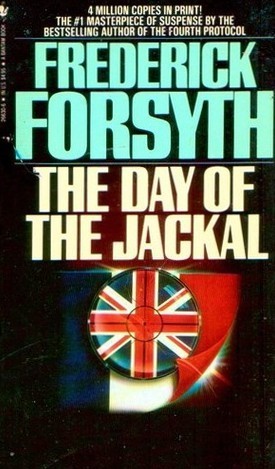
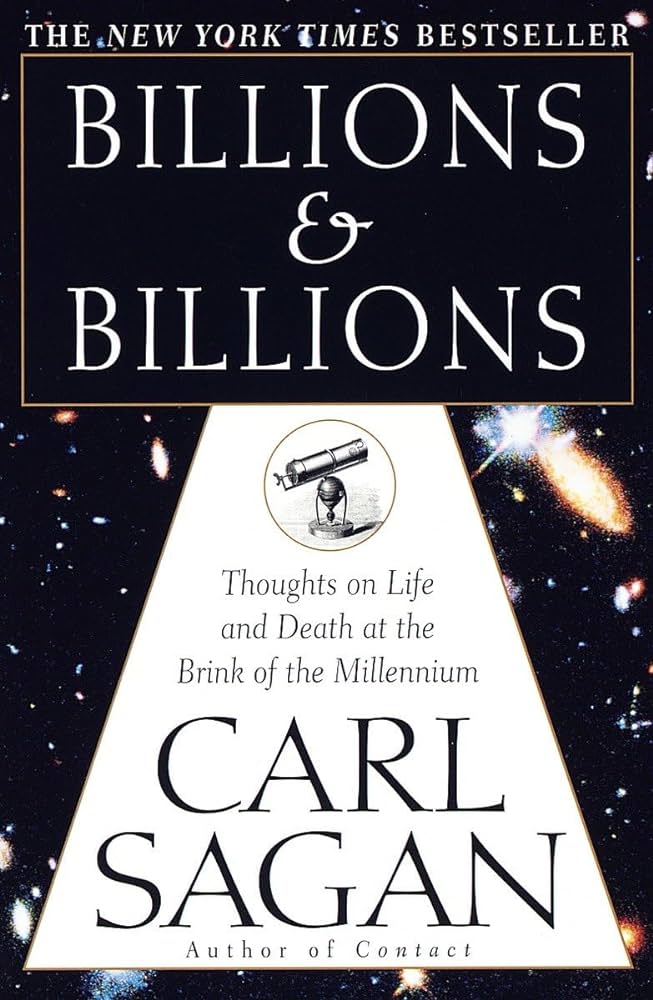
15. Billions & Billions: Thoughts on Life and Death at the Brink of the Millennium – Carl Sagan (original ranking NR)
‘Billions & Billions’ was the last book written by the late astrophysicist Carl Sagan while he was fighting cancer. He knew the end was near. This was the witness statement of his life, experiences, and knowledge of the world. He explores many subjects, including astrophysics, psychology, history, religion, mythology, philosophy, and others. Beyond that, he tells us his personal story of who he was, what drove him, and what he held dear.
Dr. Sagan, a timeless figure with books and ideas that will keep him alive forever, was optimistic about the world, people, and life. He envisioned a future where people would work together to make the world a better place, with science leading the way. Through his work, Dr. Sagan inspired countless individuals to think critically, dream, and ponder a world shaped by science. He had an innate ability to make complex scientific ideas accessible to all, teaching us that science is simply a method of breaking down problems into manageable parts, rather than something beyond the average person.
There is much to learn from Dr. Sagan to this day. I believe that if every person spent some time reading Dr. Sagan’s books (including this), the world would be a better place. These books are more about life and people than about science. Science is but a vessel on the path towards a healthier society, enlightened civilization, and a better world. 9/10
16. The Kite Runner – Khaled Hosseini (original ranking #16)
(original ranking #16)
Kite Runner is a story different from all others on this list. It’s a story of friendship and redemption. It’s about growing up and facing and overcoming the challenges in life. The initial part of this book takes place in Afghanistan in the 1970s, before the Taliban took over.
Amir is the son of a rich man, and Hassan is the son of a servant of Amir’s father. Amir and Hassan become best friends, hanging out and flying kites together. One day, a kid named Assef attacks Amir for being friends with Hassan, who belongs to a lower class. Amir, being small and frail for his age, could not defend himself, and Hassan stepped in to defend Amir, forcing Assef to flee. In a future encounter, Hassan gets trapped by Assef and Assef beats him up badly. Amir sees it all, but he doesn’t step in or get help and flees like a coward. Hassan forgives Amir, as he always does, but Amir feels guilty. That guilt leads him down a darker path that forces Hassan and his father to leave Afghanistan altogether. Amir regrets that moment for the rest of his life but later redeems himself.
It’s a powerful story of friendship, compassion, love, redemption, loyalty to the end, hope, and inspiration. The story has moments that make you laugh, cry, and think. The sequel ‘A Thousand Splendid Suns‘ is also just as good. 9/10
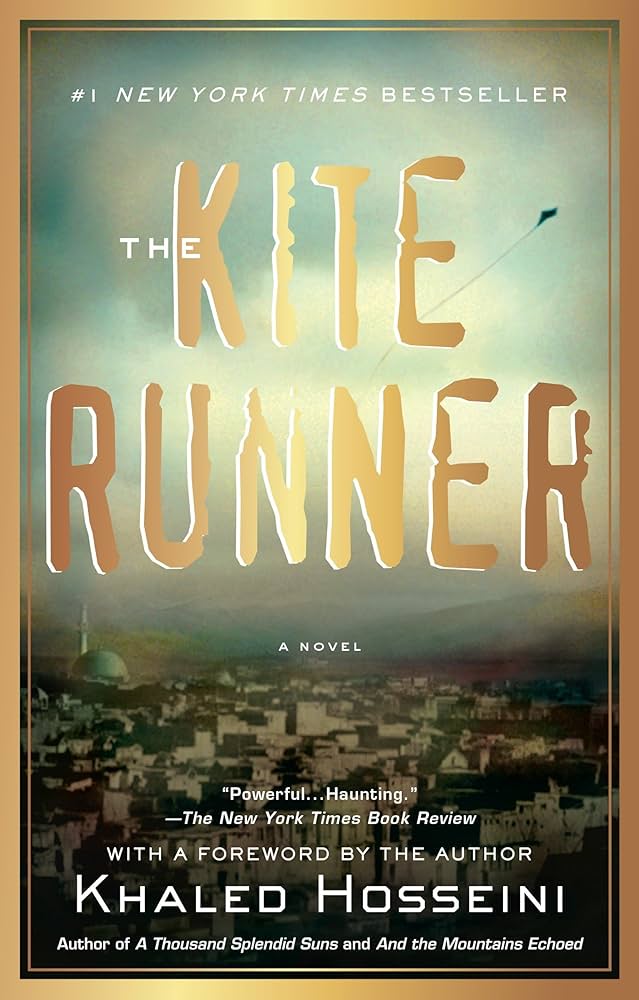
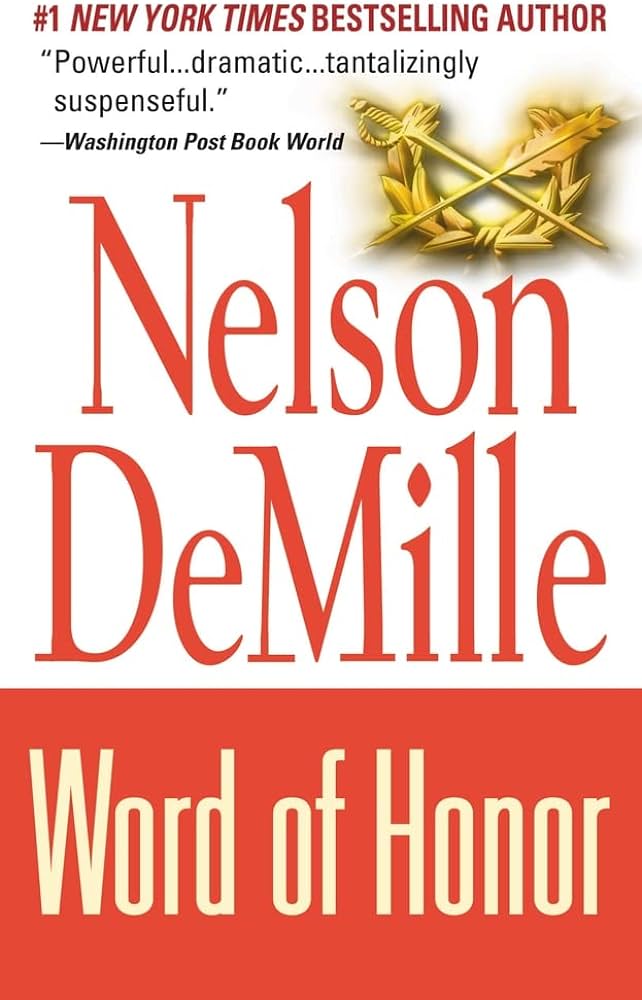
17. Word of Honor – Nelson DeMille (original ranking #17)
‘Word of Honor’ depicts the ramifications years later of a fictional war crime that took place during the Vietnam War by a US Army unit led by Lieutenant Benjamin Tyson. Innocents suffered a massacre, and an army unit committed a sexual atrocity. The main character, Ben, was present and knows details about the encounter. The US Army starts up a court-martial against the unit, and Ben’s crew has to live through it all again with Ben getting called for being a culprit who let it happen under his watch. His crew had vowed never to talk about what had happened in the very stressed war situation. Ben has to sacrifice his old friendships and his word for the truth. As the case progresses, we see Ben’s strengths and flaws unravel as a human and leader. Twists and turns lead us deeper and deeper into the story. Ben’s true honor as a friend, leader, husband, father, and human being gets put to the test. DeMille brings all the characters to life poignantly and authentically.
Author Nelson Demille was a real-life Vietnam War veteran as a US Army Lieutenant, so he was there firsthand as the fighting took place. His knowledge and expertise on the subject are apparent not only in this novel but in all of his works. This truly was an amazing book that was very hard to put down! 9/10
18. The Hunger Games (Book 1) – Suzanne Collins (original ranking #14)
(original ranking #14)
Movies, shows, and books have overdone the post-apocalyptic stories for decades. When Collins released ‘The Hunger Games’, it was original in both its setting and plot. Since then, other media have adopted similar ideas from it.
The story became well-known after the movies became mainstream (the books are better!). Katniss Everdeen, her mother, and her sister Prim live in the fictional, tyrannical nation of Panem. The capitol is wealthy and located high in the Rocky Mountains, and 12 poor districts surround it. Katniss comes from District 11. Each year, a tournament to the death called Hunger Games takes place where contestants can either volunteer or get picked from a lottery. Only one contestant can win, and the rest die. The winner gets rewarded along with the district the winner came from. The lottery draws Prim, but Katniss refuses to allow it. Instead, she volunteers to take Prim’s place. What ensues is breathtaking.
The characters are well-developed and memorable, especially Katniss, Peeta, and Rue. Few action movies/books have the main character as a badass, cunning, courageous girl. I appreciated that change here from the status quo that is always a buff, testosterone-filled, rebellious man. Often, the true heroes are those we least expect, and here it’s Katniss, who has the willpower and perseverance to confront whatever obstacles stand in her way. After watching the films, Jennifer Lawrence is the only person I can envision when I think of this series. This series is one of the highest-reviewed books out there. I read through the first book in only ten days. 9/10
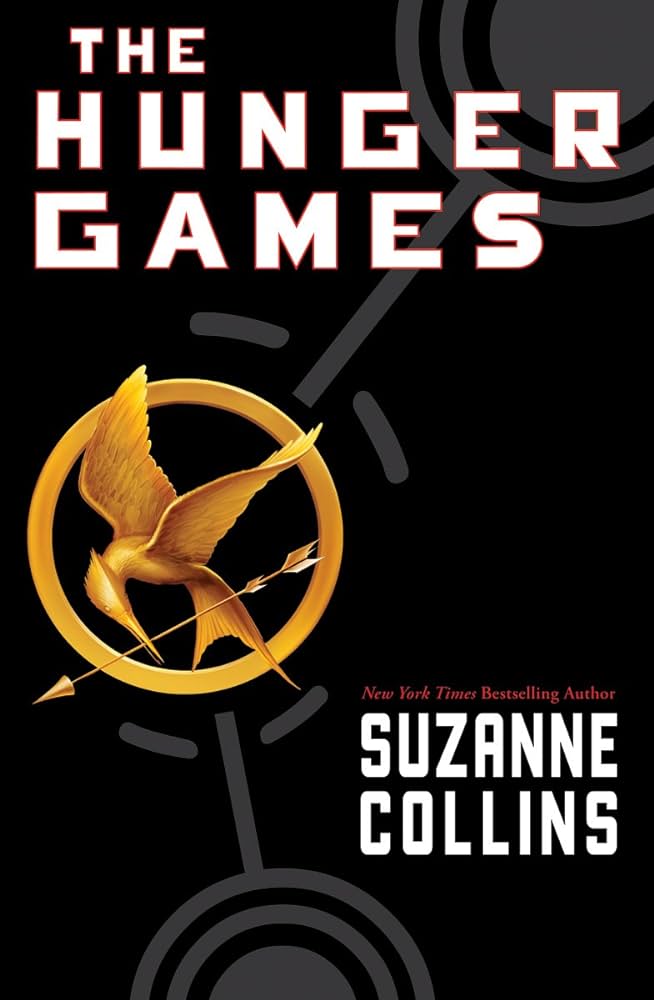
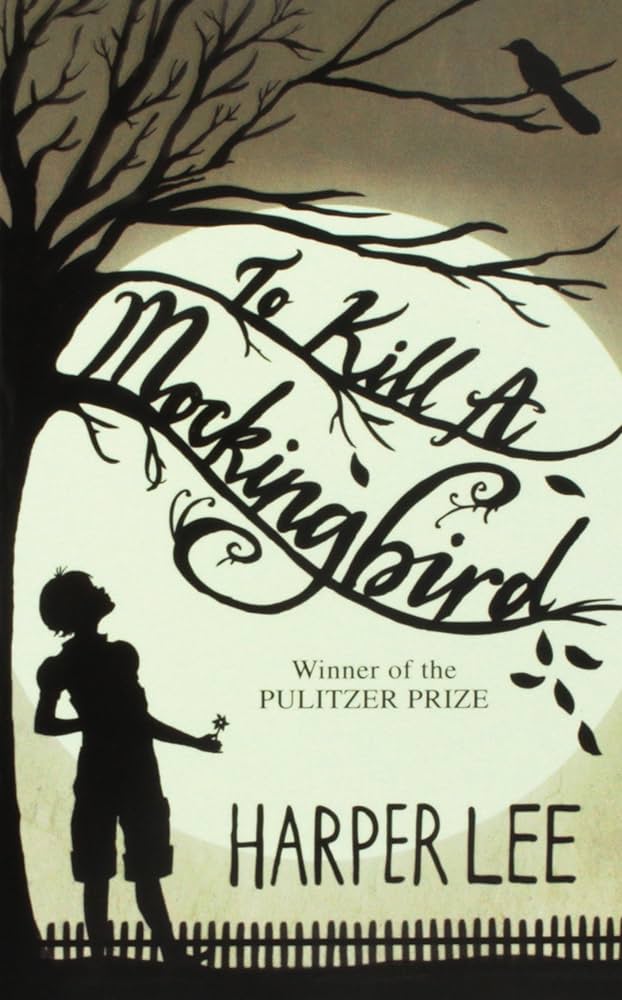
19. To Kill a Mockingbird – Harper Lee (original ranking #18)
– Harper Lee (original ranking #18)
I read this back in 10th grade English class, and it stayed with me over the years. It takes place in the state of Alabama during the height of the great depression of the 1930s when poverty and racism were rampant. The white-black segregation was tearing the country apart in the time in question.
The story is told by a charming little girl, Scout, who is very observant and doesn’t miss anything. Scout narrates the story of the town, its people, her friends, and her family, including her brother Jem and their father Atticus, who is a lawyer. It’s a coming-of-age story where the innocent Scout realizes that the world is not all sunshine and roses. I feel she understands more about the world than most of the adults with decades of experience. Wisdom does not necessarily come with age.
A white woman accusing a black man of rape was instant death for the black man, often without a trial. That very thing happens here with a white woman, Mayella, accusing a black man, Tom, and the judge asks Atticus to represent Tom. Atticus, an honorable man of high integrity, agrees to take the case. Many of the townspeople become enraged to see a respected white man be willing to defend a black guy. The story unfolds as we go through the case. 9/10
20. Jurassic Park: A Novel – Michael Crichton (original ranking #10)
(original ranking #10)
‘Jurassic Park’ was arguably Michael Crichton’s best book. I think Steven Spielberg did a great job directing this book into a movie and putting the right actors into place. There were some minor changes in the film from the novel, but I have no complaints. The movie did complete justice to the book, which doesn’t happen often.
I first read this book in 4th grade many years ago and don’t remember all the details. I recall the book goes into many more details that the movie skipped. Most people have seen the film already, but the idea is scientists extracted dinosaur DNA from a long-dead mosquito in hardened honey sap. The mosquito had sucked blood from a dinosaur before getting preserved in the honey sap. That DNA is used to bring back dinosaurs in a lab through genetic engineering. While not realistic because of DNA not surviving intact for such long periods, it’s still fascinating to contemplate using this approach to potentially bring back animals like the Wooly Mammoth, the Saber Tiger, and other more recently extinct species if their DNA is discovered intact.
Crichton goes into many issues surrounding the dangers of cloning. He explores the ethics, morals, scientific, and philosophical implications. Do we have the right to play God? Would such an extinct species even survive today? It’s never a straightforward answer. 9/10
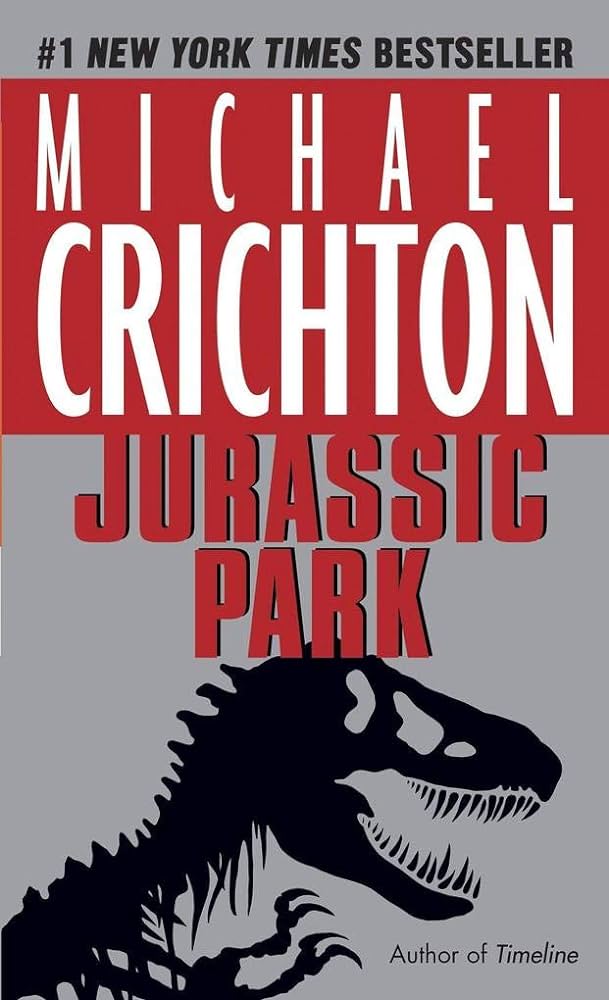
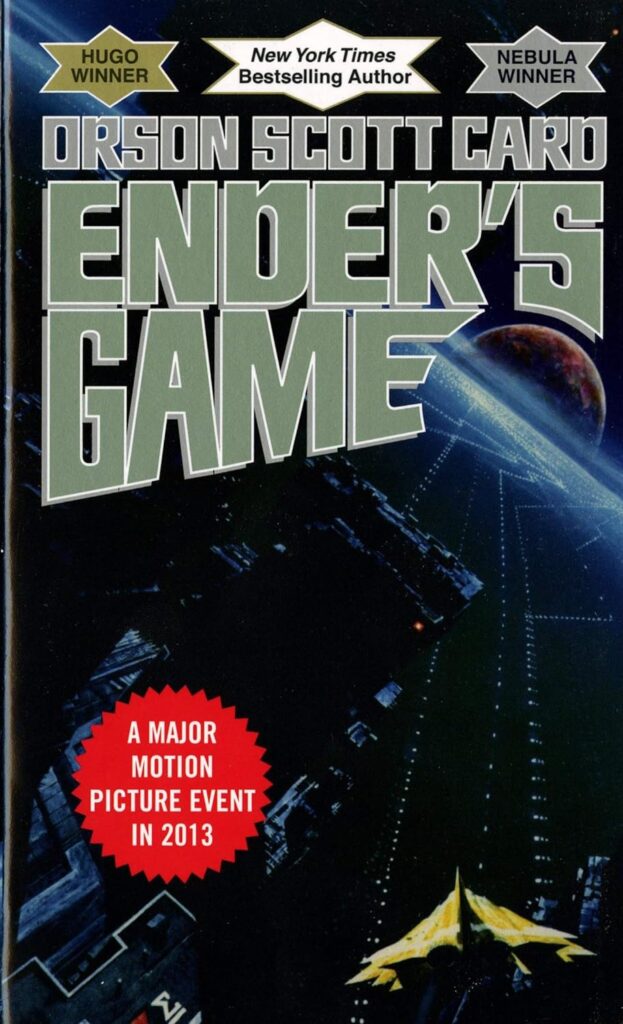
21. Ender’s Game – Orson Scott Card (original ranking #9)
– Orson Scott Card (original ranking #9)
Ender’s Game is a brilliant novel that combines sci-fi with space warfare from the perspective of a young genius named Ender. I read it in 7th grade, but I still remember it (my 7th grade English teacher had recommended it). I blazed through the book, and I couldn’t put it down. It’s a quick read targeted at teenagers, but the story is so deep that anyone would enjoy it. The story is about leadership, friendship, and the triumph of the underdog.
Earth has been in a war against an alien species for a century, barely holding on. As part of the defense program, the human military has been using genetic experimentation to create a superhuman tactician who can end the war once and for all. Ender Wiggin is one cadet in a space military school undergoing training for that very purpose. He has the potential to turn the tides of war.
The story draws you into a world much like ours but into the future. It’s a journey that you go through expecting everything to be a certain way, but everything is not as it seems. I will leave it at that. The ending is powerful and stunning. It’s a 4 book series that starts with ‘Ender’s Game.’ I didn’t enjoy the latter books as much, but they are unnecessary to read.
I will mention that Orson Scott Card has been in the hot waters for many years for his views against the LGBT community and misogyny. I would consider him ignorant and a bigot, but I can’t use that to say ‘Ender’s Game’ is an awful book. The ideas portrayed within are too good for me to write off because of the author’s views. 9/10
22. Heir to the Empire (Star Wars: The Thrawn Trilogy) – Timothy Zahn (original ranking NR)
Out of the many books written based on the Star Wars universe, ‘Heir to The Empire’ is arguably the best. Disney is turning it into a film. ‘Heir to The Empire’ picks up five years after ‘Return of the Jedi’ and introduces us to one of Emperor Palpatine’s Grand Admiral Thrawn, who returned from waging war in the Outer Rim of the galaxy. Thrawn is a brilliant mastermind and tactical genius. With Palpatine and the Empire gone, Thrawn is the heir to the Empire and the main villain. Zahn also brings back our rebel heroes Luke Skywalker, Leia Organa, and Han Solo, now leaders of the new Republic. Along with them are Mara Jade, an assassin seeking revenge on Luke, and her boss, Talon Karrde, a master smuggler. There is also a Jedi clone named Joruus C’baoth, one of the villains working for Thrawn. There are also a plethora of other characters, some who we know and others who Zahn creates.
I don’t know why Disney didn’t bring this to the big screen first and instead opted for episodes 7, 8, and 9 train wreck. To right their wrong, they finally decided to backtrack and bring in ‘Heir to the Empire’ as canon.
Back to the book. Zahn keeps you interested through the cat-and-mouse chase as Luke and the gang must determine what Thrawn knows and fight him for the stability of the galaxy. Thrawn is reminiscent of Sherlock Holmes and is always multiple steps ahead of the new Republic. It’s a thriller so well-written that I was flipping through pages, unable to put it down. 9/10
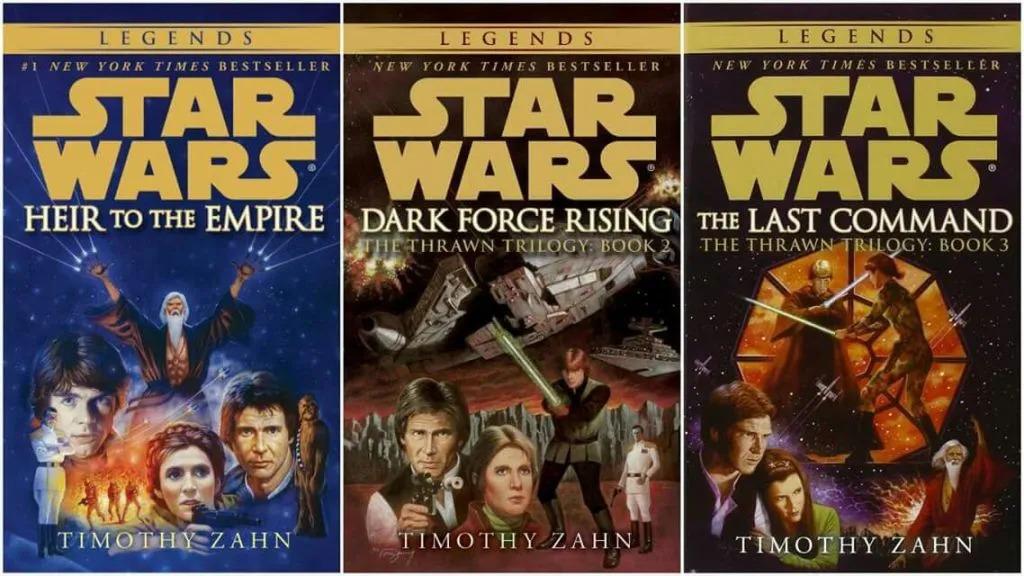
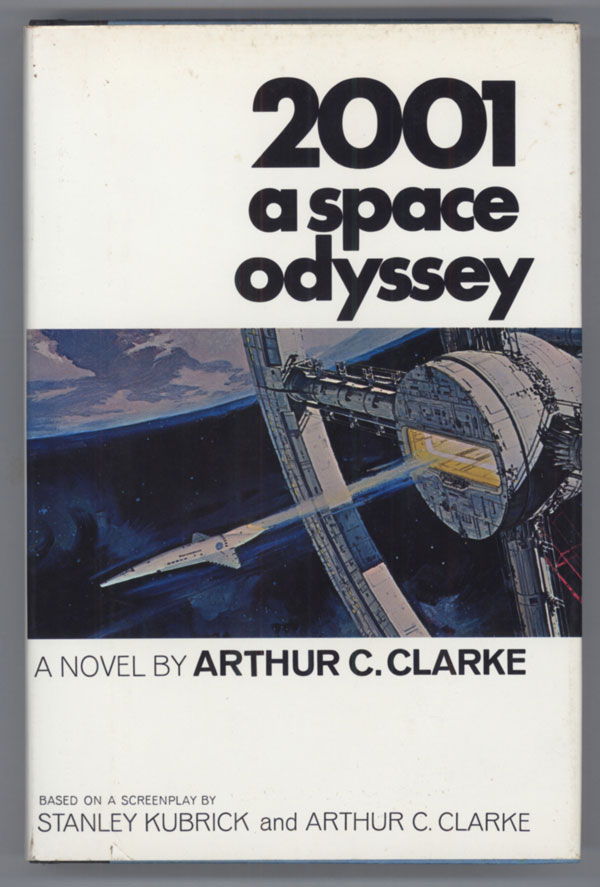
23. 2001: A Space Odyssey – Arthur C. Clarke (original ranking NR)
Arthur C. Clarke was a visionary ahead of his time, and his most iconic work was ‘2001: A Space Odyssey.’ Legendary director Stanley Kubrick directed the film of the same name, and it is one of the finest movies of all time. What many don’t know is that Clarke was working on the book at the same time Kubrick was working on the film. They were in constant communication and bouncing ideas off each other. The book and film diverge at some point, but the overall premise stays intact. Clarke, having the advantage of writing over the limitations of photography, took the story to heights that the film couldn’t quite reach. I won’t go into a detailed explanation of the plot. The basic premise is that scientists found an ancient monolith on the moon. Dr. Heywood Floyd is brought in to study the monolith. The monolith activates and points out a location in the solar system near Saturn, so a team of astronauts (along with supercomputer HAL) is dispatched.
Clarke, Isaac Asimov, and Robert Heinlein are often called the Big Three because they transformed the sci-fi genre. They were not the first sci-fi writers, but they were the most innovative, and prolific. They transformed science fiction into what it is today.
In ‘A Space Odyssey’, Clarke brings many themes, philosophies, and ideas together that it’s not always an easy read. Clarke has a unique writing style that is simple and easy to read, but he says so much in so few words. I always found Clarke to be straightforward and not spend multiple pages trying to explain something. He gives you as it is without unnecessary fluff. In the end, it leaves you with more questions than answers. Clarke made a series out of the story, and you never truly get the answers you seek. 9/10
24. One Flew Over the Cuckoo’s Nest – Ken Kesey (original ranking #15)
(original ranking #15)
OFOTCN was well-articulated from start to finish. This occurred during a scary time when nurses and doctors mistreated mental hospital patients in inhumane ways. They performed experimental procedures, including lobotomy, where nurses and doctors would drill into the patients’ skulls and remove pieces of the brain. The doctors tested different drugs without obtaining permission from the families. There was a strict regimen that they didn’t deviate from. Then, new patient Randle McMurphy enters the picture, and he brings change by introducing the patients to laughter, joy, freedom, and new ideas. These were all things that ran counter to what mental hospitals expected.
McMurphy shows us the power of life by showing us the light at the end of the tunnel and hope. He stands up against the head nurse, who we only know as Nurse Ratched, who was mistreating patients. She represents everything that was wrong with the place. McMurphy’s influence transformed the patients in the hospital for the better, to the extent that those meant to supervise them seemed like patients themselves, while the patients took on the role of overseers (essentially switching places). In the end, McMurphy may have lost physically but realistically & metaphorically he won. McMurphy won our hearts and minds.
The movie also lived up to everything the book did thanks to Jack Nicholson’s brilliant acting and the great cast. I still highly recommend the book. 9/10
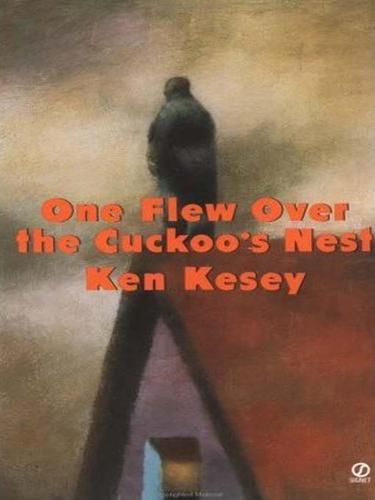
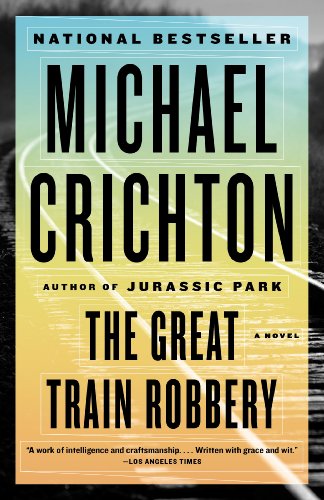
25. The Great Train Robbery – Michael Crichton (original ranking #12)
‘The Great Train Robbery’ is a historical fiction written by Crichton and takes a different approach than his other books. Most of his other books focus on scientific issues and enter the morality area. This one is a detective adventure, but it still has all the characteristics of a full Crichton experience. The plot is based on an actual train heist from 19th-century London. The setting and the people are all brought to life authentically, but the plot diverges from fact for reasons of artistic freedom. A cunning mastermind thief, Edward Pierce, puts together a complex scheme for a train robbery, which he builds up one step at a time. Savvy federal detective, Edward Harranby, soon ends up in pursuit before Pierce and his henchmen succeed, and a chess game ensues between the two. However, Pierce seems always to be a few steps ahead.
Crichton shows his versatility as a writer here. He is not just a skilled writer, but an even better storyteller. I felt like I was watching a movie rather than reading a book. It was turned into a film starring Sean Connery, but it wasn’t as good as the book. It’s a fun read with twists and turns that will have you flipping pages to find out what is coming next. 8.5/10
26. Night – Elie Wiesel (original ranking #13)
(original ranking #13)
This was a tough memoir to read. Difficult not in reading difficulty, but the plot line itself. The powerful images of the Holocaust, documented by Wiesel, make you question everything about what it means to be human. This book gets graphic into the atrocities committed by the Nazis in World War 2. Elie Wiesel was documented in one of these extermination camps, Auschwitz (and later Birkenau), where he lost his entire family, friends, and people he loved. I’m not very emotional and never was, but this left me reeling and heartbroken.
Young Elie Wiesel goes in with hope in people and god. As he saw the massacres and killings, Elie still clung on, hoping that god would save them. One by one, people get savagely slaughtered, gassed, and burned in ovens. Eventually, Elie loses all hope in humanity and faith in god. He becomes numb and lost. The only thing left to save him was his survival instinct. One scene I recall is Elie’s dad being beaten into a pulp by a Nazi officer for simply requesting water. Elie was so broken that he couldn’t do anything to help his dad. He wakes up in the morning only to find out they took his dad away to the ovens. When the first Allied tank rolled in and freed them, Elie had no tears or joy or anything left emotionally. It took Elie a decade after he got out of Auschwitz to even have words to express the pain, anguish, and emotions he felt.
This book violently rips into perspective why we can’t be bystanders when we see injustice. We simply cannot allow evil to triumph. The day we forget that is the day we all lose. We lose not just our dignity but hope for a better tomorrow. 9/10

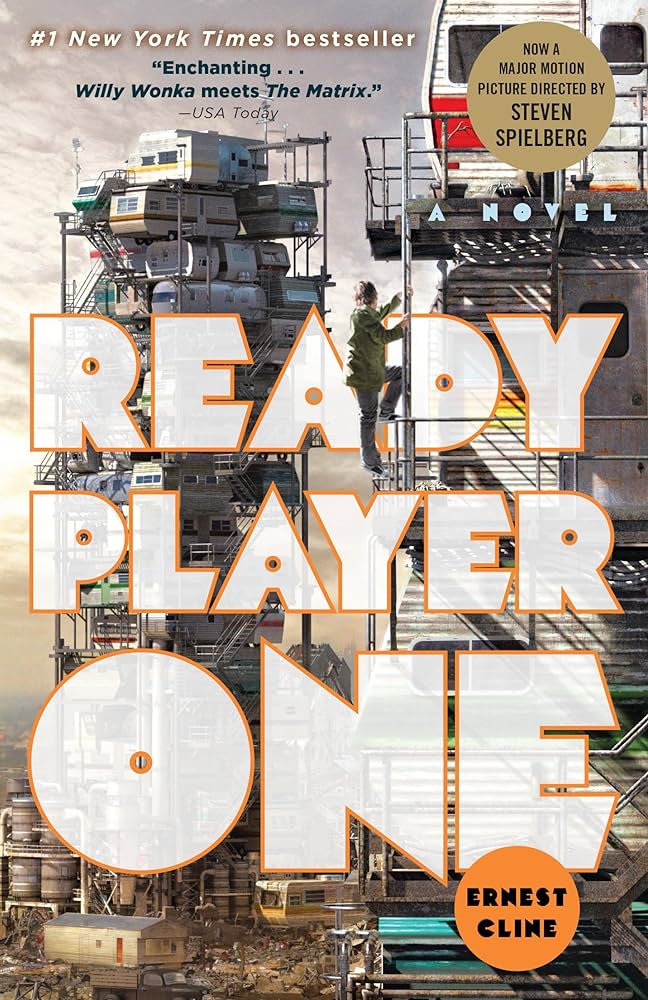
27. Ready Player One – Ernest Cline (original ranking NR)
I loved this book. Author Cline invites us into his world, where virtual reality rules supreme. We feel we are a part of the community in the moments we spend in his world as we follow the main character through twists and turns. He has the readers involved in puzzles and mini-games inspired by 1980s media. These include movies, shows, video games, and music that were big throughout the 80s. It was clear nostalgia drove Cline to write this, and I also felt the same way as the reader, recalling my own childhood.
Wade Watts is a teenager living with his aunt in Oklahoma City in a dystopian, futuristic world. Wade’s neighborhood resembles a slum with trailer homes stacked on top of each other. People have turned to a virtual reality world called OASIS to escape their troubles. The creator of the virtual reality world, James Halliday, had passed away and left a will saying he inserted an Easter egg in OASIS. Whoever finds it will inherit everything Halliday owned, including control of OASIS itself. OASIS was worth trillions of dollars, so whoever owned it controlled the world. Wade and millions of others became drawn into this egg hunt. After spending years searching, he finds the first clue and soon realizes that he is not the only one desperate in the search. There are many willing to kill for it.
‘Ready Player One’ is undoubtedly written by a gamer with ideas and homages that most gamers would appreciate and love. I didn’t know what to expect going in, but I was pleasantly surprised it was right up my alley as a gamer most of my life. It was a lot of fun reading through this novel. I didn’t enjoy the movie. 9/10
28. A Short History of Nearly Everything – Bill Bryson (original ranking NR)
I believe this book by Bill Bryson is a must-read non-fiction book before you die even if it’s not the easiest read. I won’t post a detailed review since this book examines so much information that I don’t know where to begin. This book covered all the major sciences and went into detail that school classes over the years have not. Schools tend to focus on success stories and big details. However, that alone is not enough. The success stories in the history of science often matter as much, if not more, than the unsuccessful ones because science builds upon the failures. At the basics, science often proves by proving what doesn’t work. If you can eliminate what doesn’t work, you are on the right path to determining what does. In some ways, even the failure stories are successes if others picked up that work at a future time and pushed that forward with new perspectives and knowledge. That is the very essence of humanity – to stand atop the shoulders of those who came before us. I felt more and more inspired as I read through each chapter.
I wish Bryson would update with a new release version once per decade. It would be great to read the updated version each decade as humans gain more knowledge of the world. It’s probably unrealistic because this required years of research and travel to gather the information to put it together. Even though the book is written with facts up to the early 2000s, I still hope people continue reading this in 2024 and for many years more. 9/10
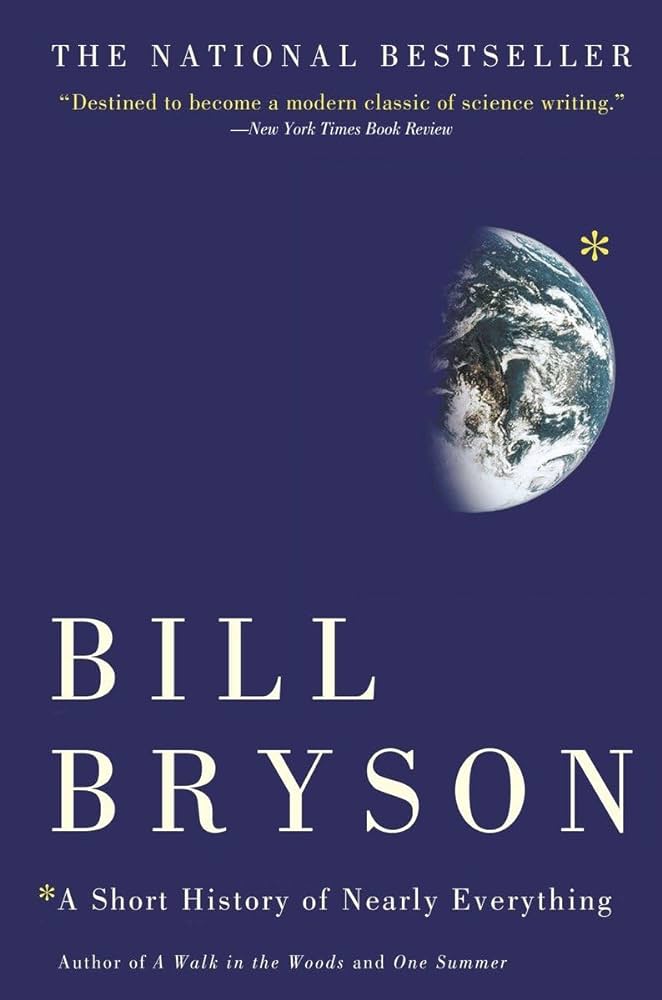
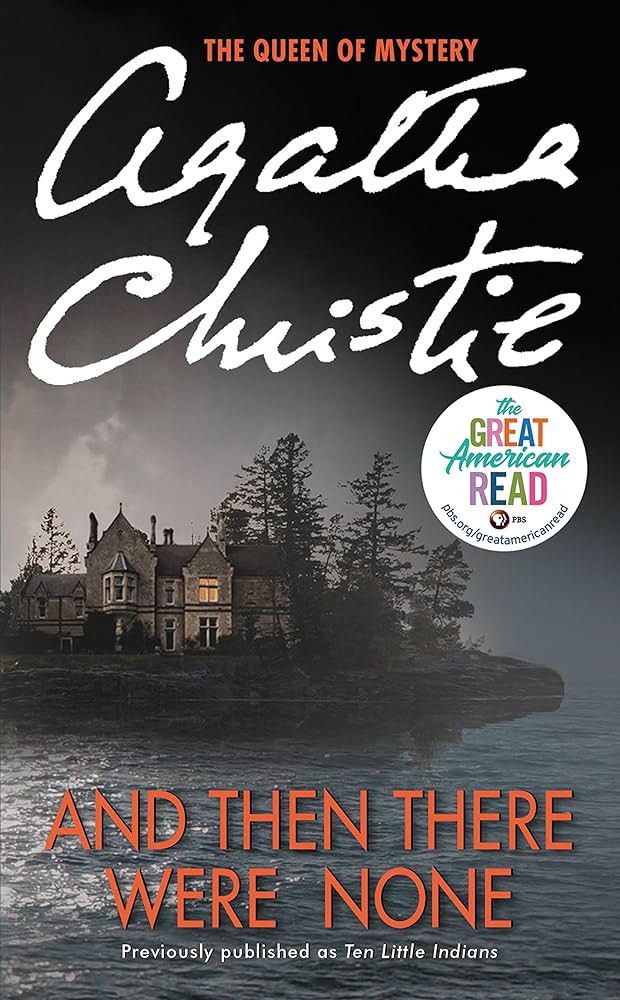
29. And Then There Were None – Agatha Christie (original ranking NR)
People often consider Agatha Christie the queen of detective mystery, and they regard this as her best work. Someone sends out mysterious letters to ten individuals, inviting them to an island under different pretenses, depending on the person. The isolated island has no way off, and a storm also settles in. One by one, they are each murdered in ways that bring some sort of poetic justice for their crimes. All we suspect is that one of them is the killer, but we don’t know who. A nursery rhyme notes how each person will die, but we don’t know who will be next. Christie drops clues along the way as the individuals also try to find out who the killer is.
There isn’t a lot of character development, and the clues are not enough for us to know who the actual killer is. We are just like the guests trying to find out more. Christie constantly has us on our toes through many twists and turns that have us questioning our rationale and opinions until the very end. I don’t have this book higher because I don’t think it has aged very well. If someone wrote it today, they would make significant changes, but they could still keep the overall plot intact. Many books and films since Christie have also explored the concept many times, but she is arguably the original (Arthur Conan Doyle is another one). 8.5/10
30. Rendezvous with Rama – Arthur C. Clarke (original ranking NR)
‘Rendezvous with Rama’ is a sci-fi mystery novel by the great Arthur C. Clarke. Scientists spot an asteroid hurtling through space and name it ‘Rama’ after the Hindu god. A space probe named ‘Sita’ is dispatched to examine this asteroid. Upon closer inspection, they discover it is not natural and is an alien spaceship in the shape of a perfect cylinder. Similar to Clarke’s ‘2001: A Space Odyssey’, a team of astronauts is sent for first contact.
While ‘2001 A Space Odyssey’ focused on the human aspect and philosophy, this story focuses on exploring the massive spaceship to uncover its secrets. The characters are not the focus here, so character development takes a backseat. There is also not a lot of fast-paced action. I think it’s a notch below ‘2001 A Space Odyssey’, but the sense of wonder and fascination is all intact. Once again, Clarke leaves us with more questions than answers. This was yet another work from Clarke that stands the test of time and influenced many future works of other artists. There are sequels, but I couldn’t finish the 2nd book. It diverges from the sense of wonder you get from ‘Rendezvous with Rama’, and I can’t recommend those. 8.5/10
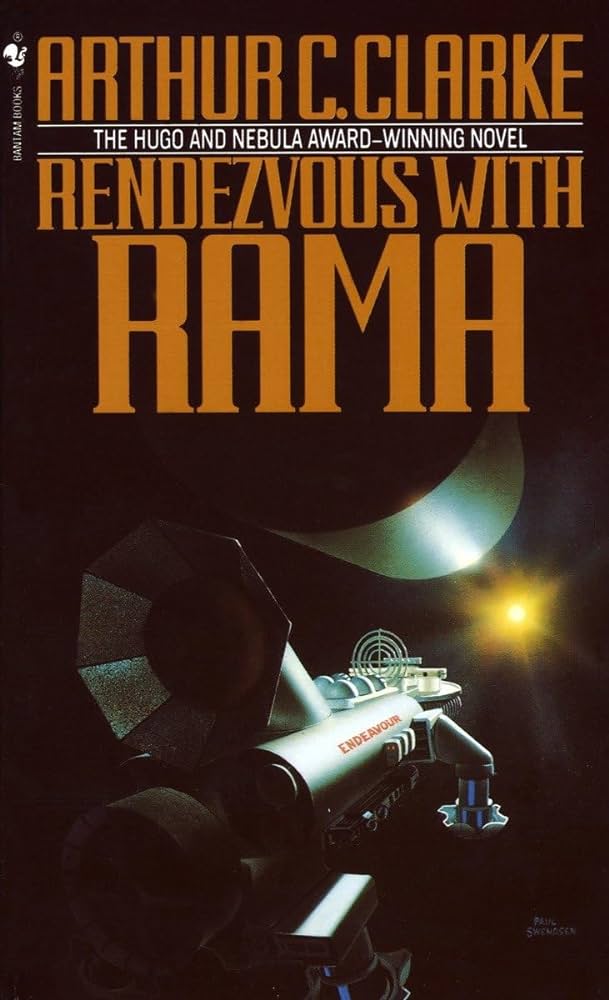
Honorable mentions:
-1984 – George Orwell
-The Institute – Stephen King
-A Brief History of Time – Stephen Hawking
-Night Fall – Nelson DeMille
Books removed from original list:
-The Hobbit – J.R.R. Tolkien
-The Lincoln Lawyer (A Lincoln Lawyer Novel) – Michael Connelly
-The Outsiders – S.E. Hinton
-The Lion’s Game – Nelson DeMille
-Raise The Titanic – Clive Cussler
-Up Country – Nelson DeMille
There are many other books that I can’t get into them all here. Feel free to recommend books you enjoyed! Keep thinking, dreaming, learning, and reading! For life.
- My Favorite Books - February 7, 2024
- Review of Carl Sagan’s The Demon-Haunted World - January 31, 2024
- The 75 Greatest Films of All Time - December 22, 2023


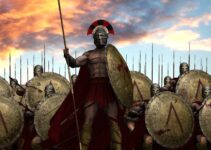

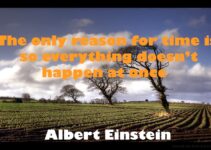
Hey… Loved the article….
There are some of them that I haven’t read and would buy soon and read them…
I don’t know if u have read it or not, read Chanakya’s Chants… Its Indian author – Ashwin Sanghi…he has written others as well, but this one is in my top 10 list… 🙂
Thanks Arohi!
That looks like an interesting thriller based on Indian history of Maurya Empire but with some imagination added from the author. I like history as I think there is much history has to teach us. Alexander the Great never lost a battle, but he probably would have in India if he hadn’t turned back. He wanted to continue, but his soldiers refused. Across the Ganges River, there were 250,000 Indian soldiers waiting, dug in, with thousands of war elephants to kill Alexander’s army. Alexander pulls out of India after he loses support of his Army. It looks like Sanghi goes into that and rise of Chanakya. I will definitely read it!
Hi, Harsh,
Your blog is very impressive, and I really like your quotes about life!
I would like to recommend a non-fiction book, though I know you said you prefer fiction. It is “Far from the Tree” (the title should be italicized, but that is not an option here), by Andrew Solomon. It explores the lives of children who are very different from their parents, that is, apples who fall far from the tree. Each entity is described in a separate chapter, beginning with homosexuality, because the author himself is gay. There are chapters on those with autism, deafness, Down syndrome, dwarfism, schizophrenia, severe disabilities, and those who are transgender, to name a few. I read it soon after it was published, almost two years ago, but it has stayed with me, because it portrays in powerful ways the lives of those individuals and their families, and it greatly enhanced my understanding and compassion. It is quite long but well worth reading. I first heard about it on NPR and then read an excellent review about it in the New York Times.
Hope you are well. I am so glad you are doing so much reading and writing!
Marcie Kaminker
Hello Mrs Kaminker!
Thank-you for the kind words! I just read a few of the reviews for “Far From the Tree” on Amazon. I see it has top-notch reviews. I will definitely put it on my to-read list. It seems to go into topics such as disabilities that many out there tend to steer clear of because they don’t feel comfortable thinking about people out there that may be dealing with such issues. I will check it out for sure!
I’m slowly starting to read more and more non-fiction books the last year or so. For some reason, I had been very used to reading fiction books over the years – mainly thrillers and adventures. They’re great for building imagination & thinking, but often there is much more practical knowledge & inspiration to gain from non-fiction books.
I try to keep myself busy through reading & writing as much as possible! This blog is because I truly enjoy writing. As for reading — I do all my reading on my cell-phone that I use a stand for as books are too tough to hold nowadays without my hands hurting. Anyways, it was great to hear from you!
-Harsh
Great, Harsh! Keep up the good work!
BTW, I do not remember whether I told you that my husband and I recently moved to Southern Oregon, to be near our son, daughter-in-law, and our four-month-old granddaughter. Our other kids are in the Bay Area, which is about a five- or six-hour drive. We are loving the West Coast!